Basset Hounds, with their iconic features, are renowned for drooping ears, soulful eyes, and a propensity to drool. If you're pondering, "Do Basset Hounds drool?" the answer is yes. While this breed is known for excessive drooling, managing it is possible. Understanding and addressing the factors contributing to drooling can enhance the experience for those considering adopting these lovable hounds or simply curious about the breed's characteristics.
Basset hounds are a breed of dog that was originally bred for hunting small game such as rabbits. They have a unique body shape with short legs and a long, heavy body, which contributes to their tendency to drool. Basset hounds have loose skin around their mouth and jowls, which can trap saliva and cause drooling. Additionally, their long ears can also contribute to drooling, as they can trap saliva and moisture in the ear canal.
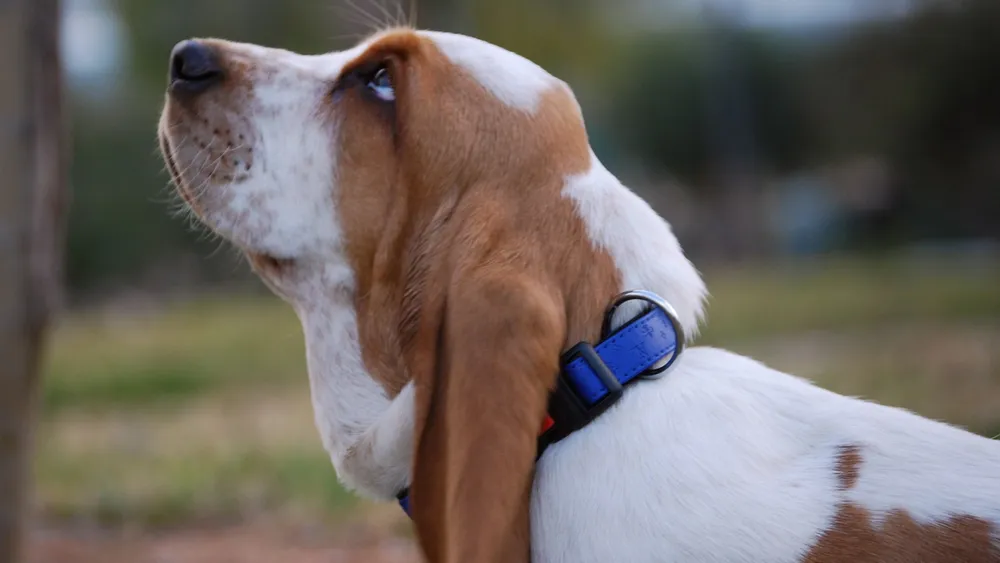
Understanding Basset Hounds
Basset Hounds are a unique breed of dog known for their distinctive appearance and friendly personalities. They are affectionate and loyal companions, but can also be stubborn and independent at times.
One of the most well-known characteristics of Basset Hounds is their tendency to drool. This is due to their loose jowls and deep-chested structure, which can cause saliva to accumulate and drip from their mouths.
Despite their drooling tendencies, Basset Hounds are a beloved breed for many dog owners. They are known for their calm and patient personalities, making them great companions for families with children or other pets.
It is important to note that Basset Hounds can also be prone to certain health issues, such as obesity and joint problems. Therefore, it is recommended that they receive regular exercise and a healthy diet to maintain their overall health and well-being.
Overall, Basset Hounds are a unique and wonderful breed of dog that can make great companions for those who appreciate their friendly and affectionate personalities.

Causes of Drooling in Basset Hounds
Basset Hounds are known for their long ears, droopy eyes, and of course, their drooling. While drooling is a natural occurrence in most dogs, Basset Hounds are known to drool more than other breeds due to their unique anatomy, behavioral factors, and health-related causes.
Anatomy and Physiology
Basset Hounds have loose skin around their jowls and mouth, which allows them to drool more than other breeds. Their long ears also contribute to drooling as they trap moisture and prevent air from circulating through the mouth, leading to excess saliva production.
Behavioral Factors
Stress and anxiety can also cause Basset Hounds to drool excessively. For example, if a Basset Hound is left alone for long periods or experiences a change in their environment, they may become anxious and start drooling.
Health-Related Causes
Various health issues can cause excessive drooling in Basset Hounds. Tooth decay, tumors, and issues with the salivary glands can all lead to increased drooling. Pain and discomfort can also cause a Basset Hound to drool more than usual.
It is important to note that while drooling is normal for Basset Hounds, excessive drooling or sudden changes in drooling behavior can be a sign of a health issue and should be addressed by a veterinarian.
Drooling and Basset Hound Care
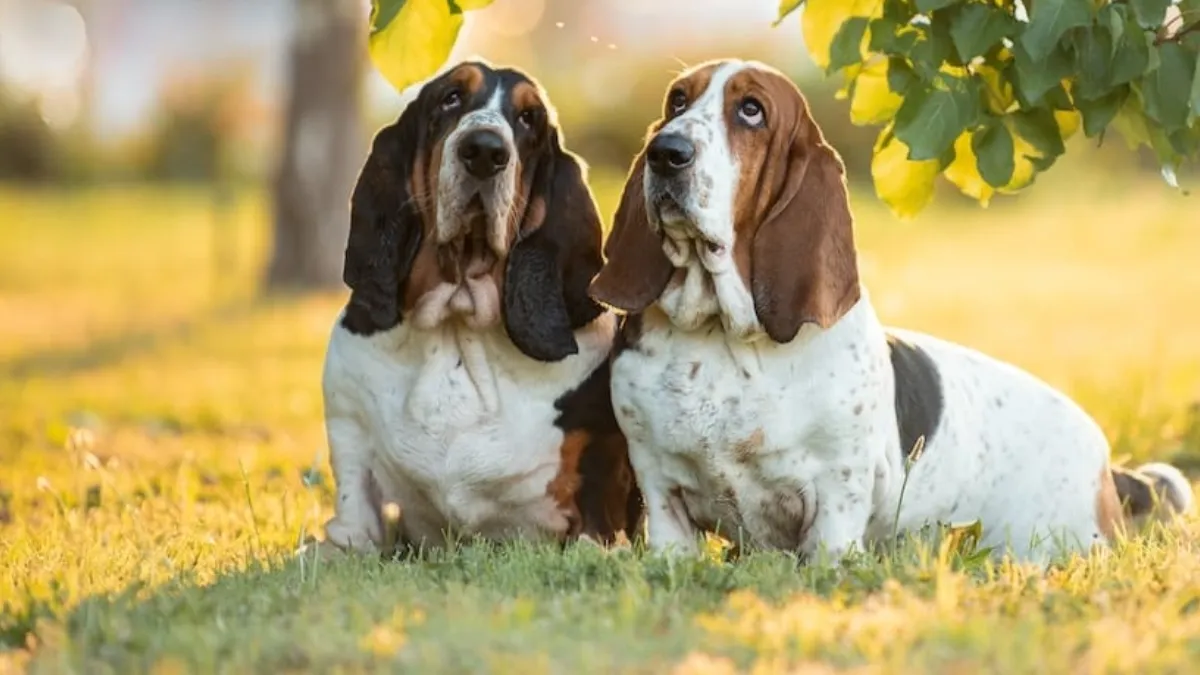
Basset hounds are known for their drooling, and while it may seem like a messy inconvenience, it is a natural and necessary part of their physiology. Basset hounds have loose skin around their mouths and jowls, which helps them scoop up and retain moisture when they drink water or eat food. This excess moisture is then released through drooling.
Diet and Nutrition
While drooling is a natural part of a basset hound's life, their diet can affect the amount of drooling they do. Feeding a basset hound a diet that is high in salt or sodium can cause excessive drooling, as can feeding them table scraps or other human foods. It is important to feed basset hounds a balanced diet that is appropriate for their age, weight, and activity level.
Grooming and Hygiene
Basset hounds require regular grooming to keep their skin and coat healthy, which can also help to minimize drooling. Regular brushing and bathing can help to remove excess dirt and debris from their skin and coat, which can help prevent skin irritation and infections. It is also important to regularly clean their ears and teeth, as these areas can be prone to bacterial growth and infection.
Regular Veterinary Check-Ups
Regular veterinary check-ups are an important part of basset hound care, as they can help to identify and treat any health issues that may be causing excessive drooling. Basset hounds are prone to a variety of health issues, including ear infections, skin infections, and dental problems, all of which can cause excessive drooling. Regular check-ups can help to prevent these issues from developing or catch them early on when they are easier to treat.
In summary, drooling is a natural part of a basset hound's life, but it can be managed through proper diet, grooming, and veterinary care. By following these tips, basset hound owners can help to keep their pets healthy, happy, and drool-free.
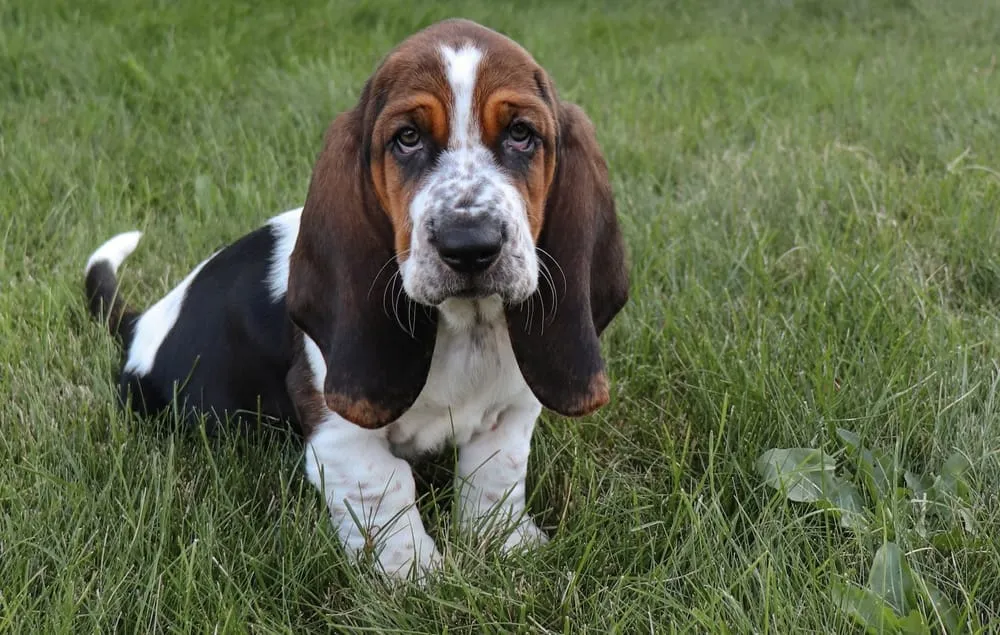
Managing Excessive Drooling
Basset Hounds are known to drool excessively, which can be a concern for many pet owners. However, there are ways to manage this behavior and minimize the drooling. This section will cover some behavioral training techniques, home remedies, and adjustments that can be made to help with excessive drooling.
Behavioral Training
One way to manage excessive drooling is through behavioral training. This involves teaching your Basset Hound to control their drooling and to only drool when necessary. This can be done through obedience training, which involves teaching your dog basic commands such as "sit," "stay," and "come." By teaching your dog these commands, you can help them learn to control their drooling and only drool when necessary.
Another technique is to use toys and treats to distract your dog from drooling. For example, you can give your dog a chew toy or a treat to keep them occupied and prevent them from drooling excessively. This can be especially helpful during times of stress or anxiety, when your dog may be more prone to excessive drooling.
Home Remedies and Adjustments
There are also several home remedies and adjustments that can be made to help manage excessive drooling. One option is to adjust your dog's diet. Certain foods can cause excessive drooling, so it's important to choose a diet that is appropriate for your dog's needs. You can also try feeding your dog smaller, more frequent meals to help prevent excessive drooling.
Another option is to provide your dog with plenty of water. This can help to flush out any excess saliva and prevent your dog from drooling excessively. You can also try using a drool bib or towel to catch any excess drool and keep your dog's face clean and dry.
In some cases, medication may be necessary to manage excessive drooling. Your veterinarian can prescribe medication to help control drooling and reduce the amount of saliva produced by your dog.
Overall, managing excessive drooling in Basset Hounds requires a combination of training, home remedies, and adjustments. By working with your veterinarian and using these techniques, you can help minimize your dog's drooling and keep them happy and healthy.
Common Health Issues in Basset Hounds
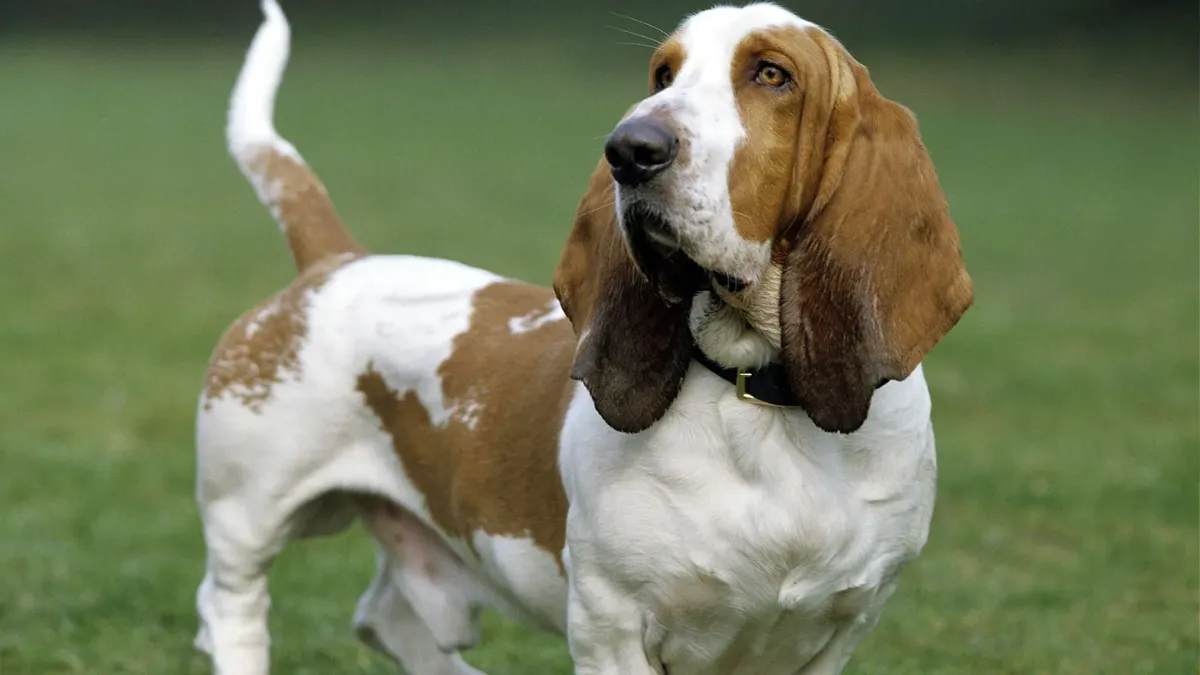
Basset Hounds are a beloved breed known for their droopy ears, soulful eyes, and jowly faces. However, like all dogs, they are susceptible to various health issues. In this section, we will discuss some of the most common health issues that Basset Hounds face.
Ear Infections
Basset Hounds have long, droopy ears that can trap moisture, dirt, and wax. This can lead to ear infections, which can cause discomfort and pain for your furry friend. Some signs of an ear infection include redness, swelling, odor, and discharge. To prevent ear infections, it is important to clean your Basset Hound's ears regularly and keep them dry.
Dental Health
Basset Hounds are also prone to dental issues, such as tooth decay and gum disease. This can lead to bad breath, tooth loss, and even systemic infections. To maintain good dental health, it is important to brush your Basset Hound's teeth regularly and provide them with dental chews and toys.
Other Serious Conditions
Basset Hounds are also at risk for several other serious health conditions. These include liver disease, kidney disease, allergies, and medication sensitivities. It is important to monitor your Basset Hound's health and seek veterinary care if you notice any concerning symptoms.
It is important to be aware of the common health issues that Basset Hounds face. By taking preventative measures and seeking veterinary care when necessary, you can help keep your furry friend healthy and happy.
The Basset Hound's Interaction with Environment
Basset Hounds are known for their droopy ears and sad expressions, but they are also known for their drooling. However, drooling is not the only thing that defines Basset Hounds. They are also known for their friendly and laid-back personalities.
Indoor Living
Basset Hounds can adapt to indoor living, but they do require a moderate amount of exercise. They are not as energetic as some other breeds, but they still need to be taken for daily walks. They are also prone to obesity, so it is important to monitor their diet and exercise.
Basset Hounds are generally well-behaved indoors and do not require a lot of space. They are content to lay around and relax, but they do enjoy having toys to play with. They are also known for their stubbornness, so training can be a challenge.

Outdoor Activities
Basset Hounds are not the most active breed, but they do enjoy going for walks and exploring their surroundings. They have a strong sense of smell and love to track scents. They are also known for their howling, which can be a bit of a nuisance for neighbors.
Basset Hounds can be socialized with other dogs, but they do tend to be a bit stubborn and independent. They are also known for their shedding, so it is important to brush them regularly to keep their coat healthy.
Basset Hounds can make great indoor pets as long as they are given enough exercise and attention. They also enjoy spending time outdoors, but they do require supervision due to their strong sense of smell and tendency to howl. With proper training and socialization, Basset Hounds can be wonderful companions.
Basset Hound and Family Dynamics
Basset Hounds are known for their good-natured personalities and love for their families. They are loyal and affectionate pets that thrive in social environments. However, there are a few things to consider when it comes to their interactions with children and other pets.
Children and Other Pets
Basset Hounds are generally good with children and make great family pets. They are patient and gentle, and their laid-back nature makes them a great companion for kids. However, it is important to supervise interactions between children and dogs to prevent any accidental injuries.
When it comes to other pets in the household, Basset Hounds can get along well with cats and other dogs if they are properly socialized. They have a strong prey drive, so it is important to introduce them to other pets at a young age and train them to control their instincts.
Training for Social Behaviors
Basset Hounds can be stubborn when it comes to training, but with patience and consistency, they can learn to behave appropriately in social situations. It is important to start training early and use positive reinforcement techniques to encourage good behavior.
Socializing your Basset Hound is also important to help them become comfortable around new people and pets. Take them to puppy classes, dog parks, and other social events to expose them to different environments and situations.
Basset Hounds can make great family pets as long as they are properly socialized and trained. They are good with children and can get along with other pets if introduced at a young age. With patience and consistency, Basset Hounds can learn to behave appropriately in social situations.
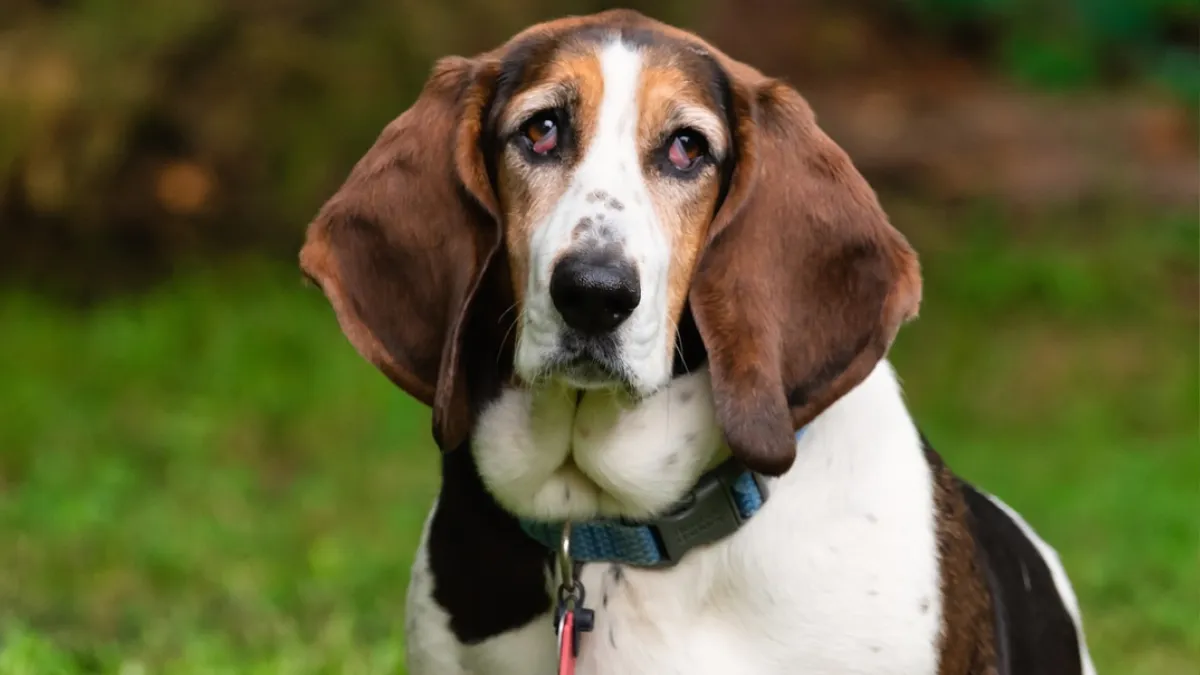
Conclusion
In conclusion, the query "Do Basset Hounds drool?" receives an affirmative nod, as drooling is a distinctive trait of this beloved breed. While Basset Hounds are notorious for their propensity to drool, understanding and managing this characteristic can foster a positive relationship between owners and their charming companions.
Factors such as age, excitement, and the presence of food often contribute to increased drooling. Embracing this endearing aspect, prospective owners can implement practical strategies, like regular mouth care and providing appropriate chew toys, to mitigate the impact of excessive drooling. Despite the occasional mess, the unique charm and affectionate nature of Basset Hounds make them delightful companions for those who appreciate their distinctive qualities.
Frequently Asked Questions (FAQs)
- What causes excessive drooling in Basset Hounds?
- Basset Hounds are known to drool due to their facial structure and the way their lips hang. However, excessive drooling can be caused by various factors such as excitement, anxiety, or heat. In some cases, it can also be a sign of a health issue.
- Is drooling a sign of a health issue in Basset Hounds?
- Excessive drooling can be a sign of a health issue in Basset Hounds. It can indicate dental problems, mouth infections, or digestive issues. If your Basset Hound is drooling excessively, it is best to consult with a veterinarian to rule out any underlying health issues.
- How can I manage my Basset Hound's drooling?
- While it is not possible to completely stop a Basset Hound from drooling, there are ways to manage it. You can keep a towel handy to wipe their mouth, use a drool bib, or provide them with a raised feeding bowl. Regular dental checkups can also help to prevent dental problems that can lead to excessive drooling.
- Are there any medical conditions associated with Basset Hounds that cause increased salivation?
- Yes, there are medical conditions associated with Basset Hounds that can cause increased salivation. These include dental problems, oral infections, and digestive issues such as acid reflux or nausea. It is important to consult with a veterinarian if you notice any changes in your Basset Hound's drooling habits.
- Can a Basset Hound's diet influence their drooling?
- Yes, a Basset Hound's diet can influence their drooling. Feeding your Basset Hound a balanced diet can help prevent dental problems and digestive issues that can cause excessive drooling. Avoid giving them table scraps or foods that are high in fat or sugar as these can cause digestive upset.
- What should I do if my Basset Hound is drooling more than usual?
- If your Basset Hound is drooling more than usual, it is best to consult with a veterinarian to rule out any underlying health issues. They may recommend a dental cleaning, antibiotics for an infection, or other treatments depending on the cause of the excessive drooling.




